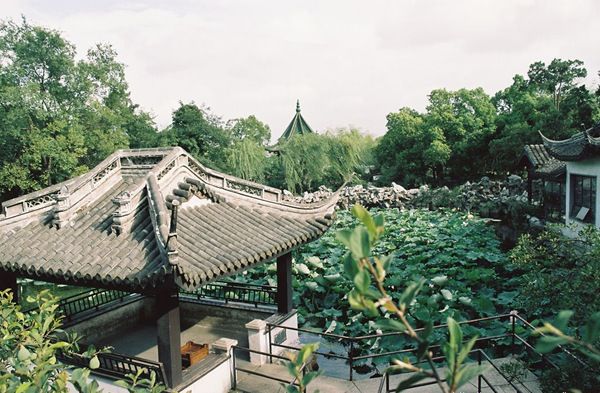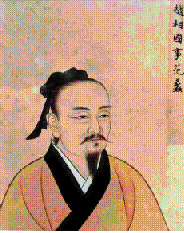|
Liyuan (garden)
Liyuan () or Li Garden is a Chinese garden on the shore of Li Lake. It is named after Fan Li, a senior minister of the state of Yue who retired to his hometown after conquering the state of Wu. One day he went boating on what was then called Wuli Lake with one of the most beautiful women in ancient China named Xi Shi. Afterwards he decided to name the lake after himself, calling it Li Lake. The garden built on the shore of Li Lake was called Li Garden. See also *List of Chinese gardens This is a list of Chinese-style gardens both within China and elsewhere in the world. Greater China This list is organized by region within the Greater China region, roughly following the structure laid out by Maggie Keswick in ''The Chinese Gar ... References Tourist attractions in Wuxi Gardens in Jiangsu {{garden-stub ... [...More Info...] [...Related Items...] OR: [Wikipedia] [Google] [Baidu] |
Liyuan Gardens
Liyuan may refer to: __NOTOC__ Places in China Inhabited places * Liyuan, Beijing (梨园地区), an area of Tongzhou District, Beijing * Liyuan, Sangzhi, a town in Zhangjiajie, Hunan * Liyuan, Qinyuan County (李元镇), a town in Qinyuan County, Shanxi * Liyuan, Wenxi County (礼元镇), a town in Wenxi County, Shanxi * Liyuan Town (栗园镇), a town in Kaiping District, Tangshan, Hebei Other places * Liyuan Dam, on the Jinsha River in Yunnan * Liyuan (garden), in Wuxi, China Other uses * Liyuan opera (梨园戏), form of opera originating in Fujian, China * 6741 Liyuan, a main-belt asteroid * Pear Garden (梨园, or Liyuan Garden), first known royal acting and musical academy in China See also * Liyuan station (other) * Li Yuan (other) Li Yuan is the personal name of Emperor Gaozu of Tang, founder of the Tang dynasty. Li Yuan or Yuan Li may also refer to: People surnamed Li * Li Yuan (ROC politician) (1879–after 1935), Chinese politician and mayor of ... [...More Info...] [...Related Items...] OR: [Wikipedia] [Google] [Baidu] |
Chinese Garden
The Chinese garden is a landscape garden style which has evolved over three thousand years. It includes both the vast gardens of the Chinese emperors and members of the imperial family, built for pleasure and to impress, and the more intimate gardens created by scholars, poets, former government officials, soldiers and merchants, made for reflection and escape from the outside world. They create an idealized miniature landscape, which is meant to express the harmony that should exist between man and nature. A typical Chinese garden is enclosed by walls and includes one or more ponds, rock works, trees and flowers, and an assortment of halls and pavilions within the garden, connected by winding paths and zig-zag galleries. By moving from structure to structure, visitors can view a series of carefully composed scenes, unrolling like a scroll of landscape paintings. History Beginnings The earliest recorded Chinese gardens were created in the valley of the Yellow River ... [...More Info...] [...Related Items...] OR: [Wikipedia] [Google] [Baidu] |
Fan Li
Fan Li () from the Spring and Autumn period, was an ancient Chinese military strategist, politician, and businessman. Fàn Li was an important political and military advisor to Goujian, the king of Yue. He later was known as Tao Zhu Gong (陶朱公) a name he took after achieving a decisive victory for Yue over the state of Wu and retiring to live a secluded life with his wife Xi Shi, one of the most famous beauties in Chinese history. Biography Along with King Goujian of Yue, Fàn Li was once a hostage of the state of Wu. After three years of captivity the two of them returned to Yue where Fàn Li helped Goujian carry out a host of reforms to streamline the administration of the Yue state. In 473 BCE, Yue was finally able to destroy the state of Wu. After the victory, Fàn resigned and renamed himself Tao Zhu Gong (). After his departure, he was said to have written a letter to Wen Zhong from Qi, advising Wen Zhong to leave Goujian's service. Wen took notice of the advice i ... [...More Info...] [...Related Items...] OR: [Wikipedia] [Google] [Baidu] |
State Of Yue
Yue (, Old Chinese: ''*''), also known as Yuyue (), was a state in ancient China which existed during the first millennium BC the Spring and Autumn and Warring States periods of China's Zhou dynasty in the modern provinces of Zhejiang, Shanghai and Jiangsu. Its original capital was Kuaiji (modern Shaoxing); after its conquest of Wu, Yue relocated its court north to the city of Wu (modern-day Suzhou). Yue was conquered by Chu in 306 BC. History A specific kingdom, which had been known as the "Yue Guo" () in modern Zhejiang, was not mentioned until it began a series of wars against its northern neighbor Wu during the late 6th century BC. According to the ''Records of the Grand Historian'' and '' Discourses of the States'', the Yue are descended from Wuyu, the son of Shao Kang which as known as the sixth king of the Xia dynasty. With help from Wu's enemy Chu, Yue was able to be victorious after several decades of conflict. The famous Yue King Goujian destroyed and ann ... [...More Info...] [...Related Items...] OR: [Wikipedia] [Google] [Baidu] |
Wu (state)
Wu (; Old Chinese: ''*'') was one of the states during the Western Zhou dynasty and the Spring and Autumn period. It was also known as Gouwu ( /''*''/) or Gongwu ( /''*''/) from the pronunciation of the local language. Wu was located at the mouth of the Yangtze River east of the State of Chu. Its first capital was at Meili (probably in modern Wuxi) and was later moved to Gusu (姑蘇, modern Suzhou) and then Helu City (the old town of present-day Suzhou). History A founding myth of Wu, first recorded by Sima Qian in the Han dynasty, traced its royal lineage to Taibo, a relative of King Wen of Zhou. According to the ''Records of the Grand Historian'', Taibo was the oldest son of Gugong Danfu and the elder uncle of King Wen who started the Zhou Dynasty. Gugong Danfu had three sons named Taibo, Zhongyong, and Jili. Taibo was the oldest of three brothers, Jili being the youngest. Realizing that his youngest brother, Jili, was favored by his father to inherit the throne of Pre ... [...More Info...] [...Related Items...] OR: [Wikipedia] [Google] [Baidu] |
Xi Shi
Xi Shi (Hsi Shih; , ) was, according to legends, one of the renowned Four Beauties of ancient China. She was said to have lived during the end of the Spring and Autumn period in Zhuji, the capital of the ancient State of Yue. In traditional stories, Xi Shi was named Shi Yiguang (施夷光). She was discovered by the Yue minister Fan Li and given to King Fuchai of Wu by King Goujian of Yue in a sexpionage operation which successfully brought down the State of Wu in 473 BC. This account first appeared in ''Spring and Autumn Annals of Wu and Yue'' published five centuries after the conquest, and is completely absent in earlier works such as '' Guoyu'', '' Zuo zhuan'', and ''Records of the Grand Historian''. Xi Shi, Wang Zhaojun, Diao Chan and Yang Guifei are known as the “Four Beauties in Ancient China”, among which Xi Shi is the first. Appearance Xi Shi's beauty was said to be so extreme that while leaning over a balcony to look at the fish in the pond, the fish would be so ... [...More Info...] [...Related Items...] OR: [Wikipedia] [Google] [Baidu] |
List Of Chinese Gardens
This is a list of Chinese-style gardens both within China and elsewhere in the world. Greater China This list is organized by region within the Greater China region, roughly following the structure laid out by Maggie Keswick in ''The Chinese Garden''. The names of Chinese gardens are very problematic in English; this list aims to capture all the major variants, both in Chinese and in English. North China * Beijing area ** Da Guan Yuan (Prospect Garden) ** Ning Shou Yuan (Garden of the Qianlong Emperor; Garden of Tranquil Longevity) ** Qu Yuan (Garden on Harmonious Interest) ** Yu Hua Yuan (Imperial Palace Garden) ** Taoranting Park (Carefree Pavilion Garden) ** Zi Zhu Yuan (purple Bamboo Garden) East China * Shexian ** Xin'an Bei Yuan (Xin'an Garden of Stelai) * Suzhou ** He Yuan (Crane Garden) ** Qushui Garden ** Xi Yuan (Western Garden) * Jiangsu ** Yangzhou *** Ping Shan Tang (Hall Level with the Mountains) *** Pian Shi Shan Fang (Sliver of Rock Mountain Cottage) ... [...More Info...] [...Related Items...] OR: [Wikipedia] [Google] [Baidu] |
Tourist Attractions In Wuxi
Tourism is travel for pleasure or business; also the theory and practice of touring, the business of attracting, accommodating, and entertaining tourists, and the business of operating tours. The World Tourism Organization defines tourism more generally, in terms which go "beyond the common perception of tourism as being limited to holiday activity only", as people "travelling to and staying in places outside their usual environment for not more than one consecutive year for leisure and not less than 24 hours, business and other purposes". Tourism can be domestic (within the traveller's own country) or international, and international tourism has both incoming and outgoing implications on a country's balance of payments. Tourism numbers declined as a result of a strong economic slowdown (the late-2000s recession) between the second half of 2008 and the end of 2009, and in consequence of the outbreak of the 2009 H1N1 influenza virus, but slowly recovered until the COVID-19 pa ... [...More Info...] [...Related Items...] OR: [Wikipedia] [Google] [Baidu] |




_2.jpg)

